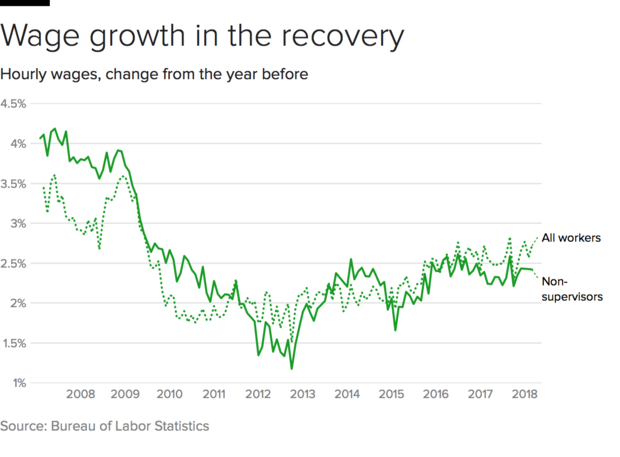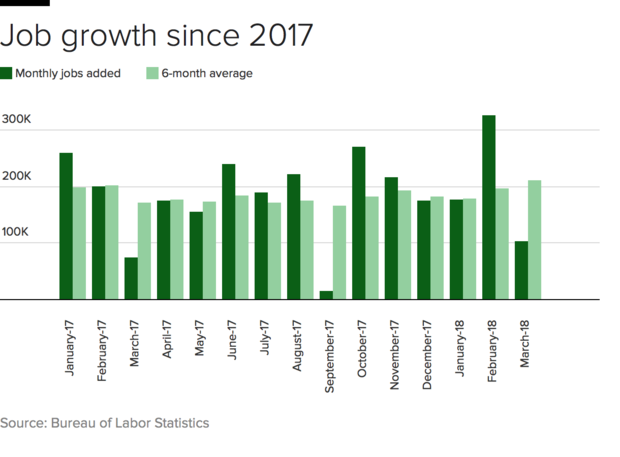U.S. job growth slowed sharply in March
Job growth slowed down sharply in March, but unemployment remained at its lowest level in over a decade.
Businesses added 103,000 jobs, the Labor Department reported Friday. The figure fell far short of predictions and followed a blockbuster February that saw 326,000 jobs added.
The weather was partly to blame: an unusually warm February had led to an outsized gain, while an unusually cold March reversed the swing. Construction jobs, heavily influenced by the weather, dropped by 15,000 in March.
The nation's unemployment rate stayed unchanged at 4.1 percent. For black Americans, the unemployment rate was 6.9 percent; it was 3.6 percent for white workers.
Wage growth remained muted, with average hourly earnings rising 2.6 percent. Economists are stumped about why worker pay isn't growing faster, given that unemployment is at its lowest rate in 18 years.
"Even though March was weaker than we were expecting, there is still evidence of an acceleration in the underlying pace of employment growth," Paul Ashworth, chief U.S. economist at Capital Economics, wrote in a note.
The Labor Department's monthly job numbers can swing sharply from month to month. While the March figures fell back, the longer trend in job growth has been robust. Monthly payroll gains have averaged 201,000 this year, compared with 182,000 in 2017. That figure is still impressive, economists say, given that the nation is in its ninth year of economic expansion and the labor force is growing much more slowly than it was before the recession.
"Considering how tight the labor market is in terms of the unemployment rate and [slow] population growth, it's difficult to maintain 200,000 jobs being added every month," said Cathy Barrera, chief economist at ZipRecruiter.
One prominent Wall Street economist raised concerns that the weaker hiring last month is partly due to rising trade tensions with China. U.S. tariffs on steel and aluminum were announced March 1 and went into effect the following week, days before the Labor Department compiled the data for its latest labor report.
"One of the fears today is that maybe the unemployment report is already showing fears that this starting to materialize in the hard data in the form of less hiring," said Torsten Slok, chief international economist at Deutsche Bank. "There are other things going on, but this is the fear at the moment."
-- Rachel Layne contributed reporting





